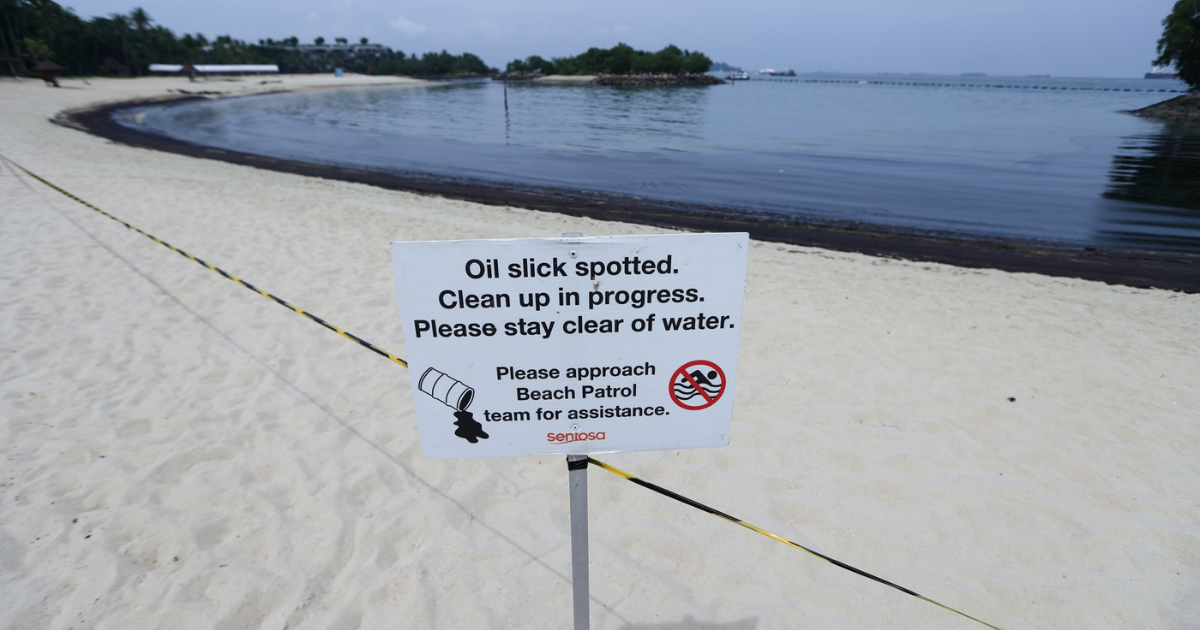An oil spill has blackened much of our Southern coastline after an allision of two vessels.
Sorry guys, no witty joke today – this news has made me extremely sad for various reasons.
We’ll get into those reasons but here’s all you need to know about the recent oil spill.
Oil Spill Resulted From Allision of Vessels
On 14 June 2024, the dredger VOX MARINER reported a sudden loss in engine and steering control.
According to a joint media statement by the Maritime and Port Authority of Singapore (MPA), National Environment Agency (NEA), National Parks Board (NParks) and Sentosa Development Corporation (SDC), this resulted in its allision with bunker vessel MARINE HONOUR.
Just for your knowledge, an allision, where only one object is moving, is different from a collision where two moving objects strike each other.
This occurred at Pasir Panjang Terminal where MARINE HONOUR was berthed.
This allision caused a rupture in one of the latter vessel’s oil cargo tanks, resulting in low-sulphur fuel oil being released into the sea.
Multiple Beach Closures
As of right now, the following beaches have been closed to facilitate clean up of the oil spill:
Note: Black pin marks Pasir Panjang Terminal, where the allision and initial spill occurred
- Areas B to H of East Coast Park – The area between the two pins along ECP have been closed since 15 June 2024, Saturday
- Labrador Nature Reserve (Jetty and Rocky Shore) – Has also been closed since 15 June 2024, Saturday
- Sentosa’s Beaches – The beaches remain open to the public but sea activities and swimming are not allowed at Tanjong, Palawan and Siloso Beach
- Beaches at St John’s Lazarus and Kusu Islands – Oil slicks were spotted at the first two islands on 16 June 2024
The public has been advised to keep away from these areas to facilitate the clean-up operations.
The joint statement also said that while no oil slicks were seen within Sisters’ Islands Marine Park, an oil sheen was observed around the surrounding waters.
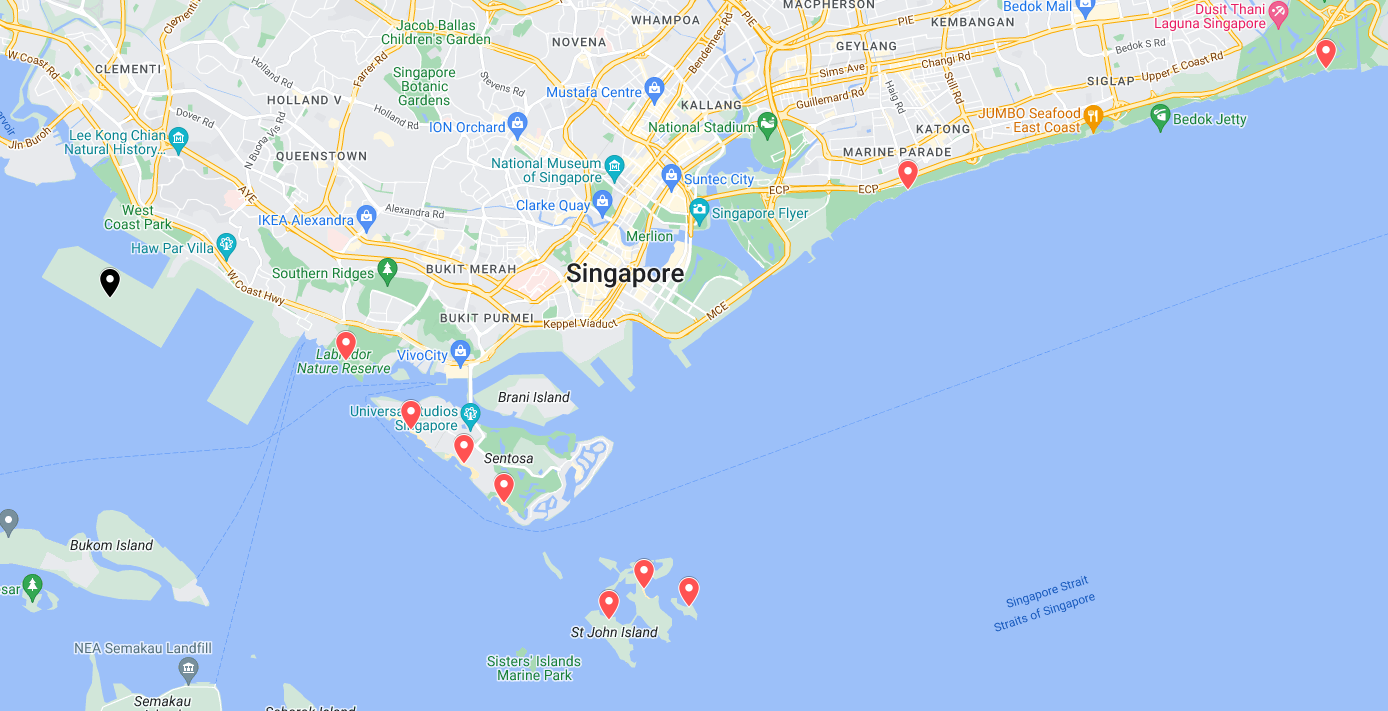
What is Being Done Now
Aside from the beach closures, authorities have rushed to implement several measures to prevent the escalation of the spillage.
Almost 1500 metres of container booms have been progressively deployed since 14 June 2024, Friday at various locations.
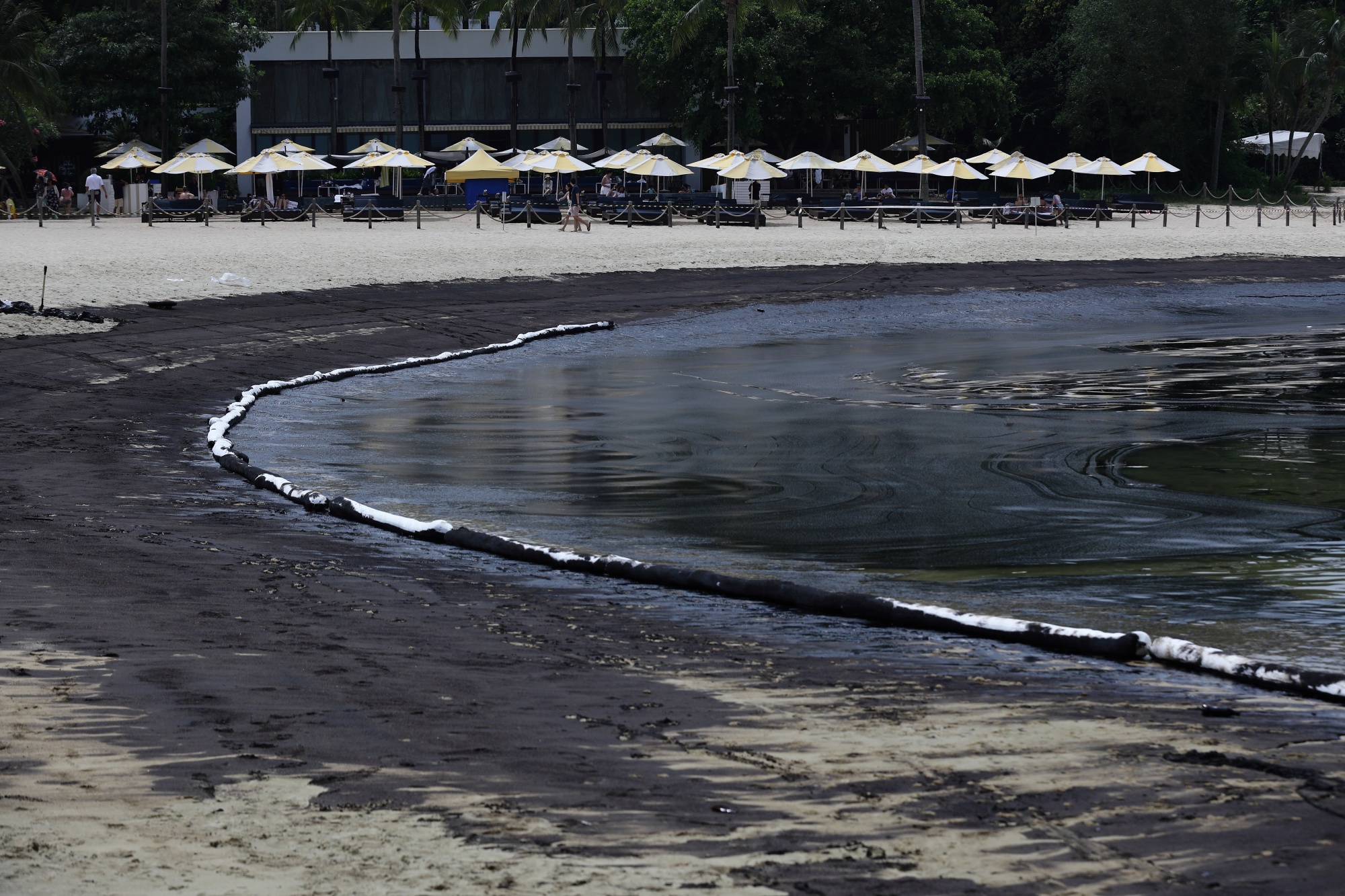
These container booms are placed on the surface of the water with a skirt that hangs below the water and can help contain the slick and keep the oil from spreading further.
Another 1600 metres of booms will be laid over the next few days to prevent the further spread of oil onto the shore.
However, according to the statement, booms are less effective “when there are higher waves above 0.5 metres”.
Hence, the use of dispersants, which are chemical agents, can help to break down the surface oil into droplets to enhance biodegradation.
Several specialised vessels and crafts will also be deployed to concentrate the oil on the water surface and skim the oil off the water surface.
NEA, NParks and SDC have deployed over 250 personnel, including more than 50 professional workers from Oil Spill Response Limited (OSRL), to assist in beach clean-up efforts.
While areas like West Coast Park have not been affected, several oil-absorbent booms have also been deployed to protect the mangroves at the Marsh Garden.
This is not the first oil spill that has occurred off our shores.
Major clean-up operations were last seen in May 2010, with Bunga Kelana 3, which saw a spill of 2,500 metric tons of Bintulu Crude Oil.
It cost a total of S$9.5 million.
However, the biggest damage that can be seen from oil spills is to our ecosystems and biodiversity.
While there were no significant wildlife casualties observed along the oil-slicked areas, many conservationists say they are on alert for more long-term effects.
As a diver, I have heard countless times about how “Singapore waters are so murky, there’s no wildlife” and that could not be more false.
The waters in Singapore boast a rich marine life, with a wide variety of flora and fauna and an estimated 12,000-17,000 marine organisms.
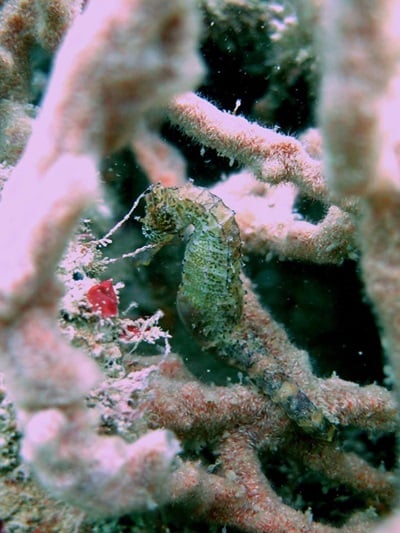
This includes over 100 reef fish species over 100 reef fish species, and more than 255 species of hard corals, which accounts for more than 25% of the world’s coral species.
I’ve witnessed this diversity underwater, seeing sea turtles, cuttlefish and sharks on my dives – even hearing about sightings of dolphins off the islands.
Because of this oil spill, much of this marine life is now at risk.
For one, oil destroys the insulating abilities and water repellency of fur-bearing mammals or feathery animals like otters and birds which can lead to them dying of hypothermia.
Inhalation and ingestion of oil can also affect many animals as it can poison them.
Corals might not immediately be exposed to the toxic oil, but sunlight being blocked by the oil-slicked surface can kill them as they are unable to create food – leading to heavy repercussions for other animals that rely on corals for shelter and food.
According to Mr Stephen Bang, the chair of the Friends of Marine Park community, a voluntary network including marine scientists and ocean-dependent business owners, the spill happened right at the start of the nesting season for the critically endangered hawksbill turtle.
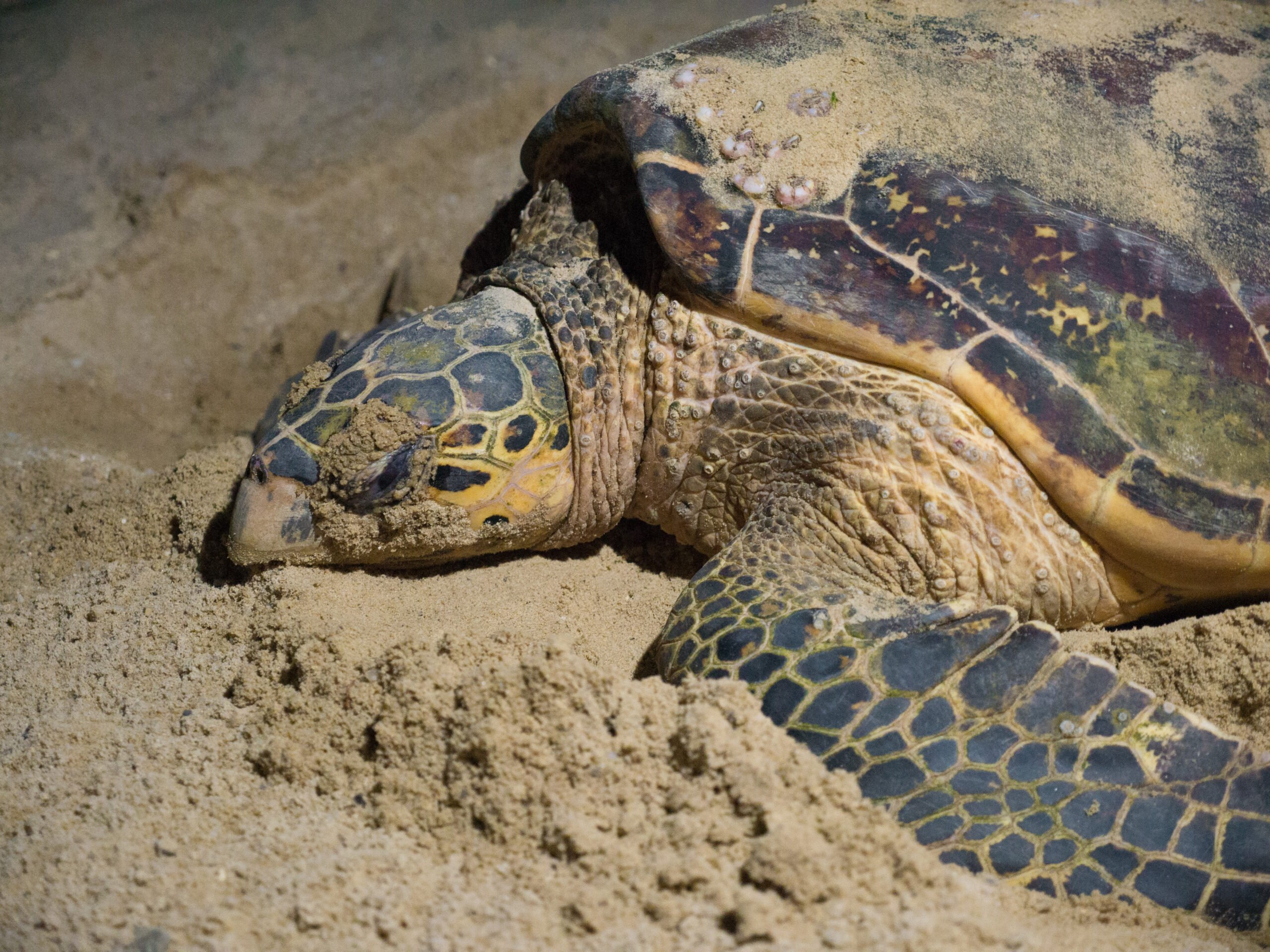
These creatures nest on our beaches and it is still unclear how this oil could have on their eggs.
Needless to say, the effects of this oil spill are severe and can have serious repercussions.
On the bright side, according to the joint statement, NParks received an overwhelming response from the public with over 1,500 sign-ups.
They stated that they would not be able to activate everyone who signed up, they would like to thank everyone for “their prompt responses in caring for the parks and nature areas.”
It’s probably a good time to reevaluate and relook at human impacts and our own carbon footprint – because the less oil we use, the less there is to spill right? *logic*
